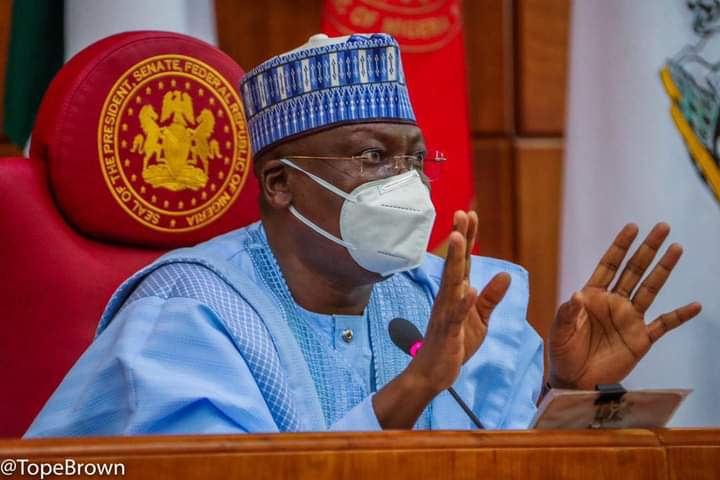The National Assembly Joint Committee on Land and Marine Transport Thursday criticized the federal government’s plan to construct a standard gauge for Kano-Maradi rail line and a narrow one for other rail projects in the South East, South South and North East.
The government had planned a narrow gauge for the proposed eastern rail corridor which begins from Port Harcourt, Rivers State to Maiduguri, Borno State.
- Power: Why Zungeru, Kashimbilla plant commissioning may be delayed – Minister
- FG set to monitor implementation of the national minimum wage payments
The committee flayed the plan on Thursday when the Minister of Transportation, Rotimi Ameachi, appeared for his ministry’s 2022 budget defence.
Amaechi had said the standard and narrow gauge rail had the same load capacity but the difference was speed, about 20 kilometers.
But the lawmakers said the proposal was discriminatory against other parts of Nigeria.
Chairman, Senate Committee on Marine Transport, Danjuma Goje, queried: “Why will you give those of us from the eastern part of Nigeria, from South East, North Central, North East the archaic, old modern narrow gauge, then you’re now spending a lot of money to do the modern standard gauge to another country?
“Are people from the South East, North Central and Northeast not Nigerians? Why should there be double standard in this matter? That’s why we’re quarreling. You’re spending a lot of money to do Lagos-Ibadan rail line.”
Chairman, House Committee on Land Transport, Abbas Tajudeen (APC, Kaduna), queried the minister for lumping several railway projects into one item, with no cost attached to them and level of completion.
A committee member, Pat Asadu said: “I believe the economy of the Southeast is bigger than that of Maradi. I’m not even talking of South-South. So, what policy guide, what need assessment, what study of federal character integration would make the Ministry of Transportation to put 284 kilometers railway from the end of the north to Maradi and then constructing a Narrow Gauge in the South East and South South?”
Responding, the minister said the total cost for the construction of the eastern line, beginning from Port Harcourt to Borno State, was between $12bn and $14bn.
He said: “If we start looking for the money now and it takes time before we get that money, you’ll say it’s Amaechi that refused to give you railway.
“Now as a minister, my mind tells me you won’t go home if you don’t provide railway for your people. I now said since it’ll be difficult for me to get $14bn, let me ask for the small one of $3bn so that I can at least reconstruct this one to run between 80 and 100 kilometers. Standard gauge for Christ’s sake is 120 kilometers. So, the difference is if you take off from Lagos you may get to Ibadan 20 minutes ahead the person using narrow gauge.”
Asked by Goje when he started to source for loans for the Kano-Maradi rail line, Amaechi said: “Kano-Maradi is 20 kilometers into Maradi. The rail takes you to Jibya, Jibya into Maradi is 20 kilometers. So, what is this about? Is Honourable Asadu telling me that we should not build railway to Katsina, Daura, Jibya, Dutse, Kano? We should not give that railway?”
Asadu interjected, saying if the federal government could not get money for standard gauge for the whole country, it would create a feeling of this is not universal.
Ameachi said the negotiation for loan for the construction of Kano-Maradi standard gauge line is about to be completed.
On the economic justification for constructing the $1. 3bn Kano-Maradi rail, Ameachi said the project was not based on sentiments, but economic benefits for the country.
He said on completion of Kano-Maradi and Kano to Lagos railway, all national cargoes from Niger Republic, like uranium and gold, would be moved through Nigerian sea port from that corridor.
This, he said, would translate into huge economic benefits for Nigeria.

 Join Daily Trust WhatsApp Community For Quick Access To News and Happenings Around You.
Join Daily Trust WhatsApp Community For Quick Access To News and Happenings Around You.


